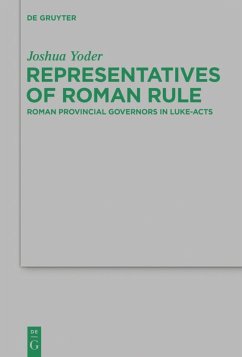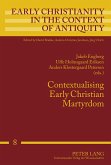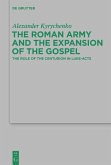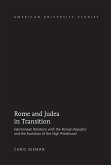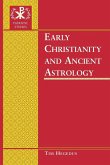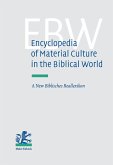Luke-Acts contains a wealth of material that is relevant to politics, and the relationship between Jesus and his followers and the Roman Empire becomes an issue at a number of points. The author's fundamental attitude toward Rome is hard to discern, however. The complexity of Luke's task as both a creative writer and a mediator of received tradition, and perhaps as well the author's own ambivalence, have left conflicting evidence in the narrative. Scholarly treatments of the issue have tended to survey in a relatively short scope a great amount of material with different degrees of relevance to the question and representing different proportions of authorial contribution and traditional material. This book attempts to make a contribution to the discussion by narrowing the focus to Luke's depiction of the Roman provincial governors in his narrative, interpreted in terms of his Greco-Roman literary context. Luke's portraits of Roman governors can be seen to invoke expectations and concerns that were common in the literary context. By these standards Luke's portrait of these Roman authority figures is relatively critical, and demonstrates his preoccupation with Rome's judgment of the Christians more than a desire to commend Roman rule.
"Die Stärke der Arbeit liegt in der narrativen Textanalyse, wobei [Yoder] ausführlich und genau die Charakterisierung des jeweiligen römischen Statthalters, die für dessen Bewertung relevanten Themen und die darin sichtbar werdende Haltung des Schriftstellers gegenüber der römischenHerrschaft herausarbeitet."
Stefan Schreiber in: Biblische Zeitschrift 61 (2017) No.2: 276-278
"Der Autor erreicht mit seinem Werk genau das, was er sich vorgenommen hat: Er beleuchtet einen ausgewählten Aspekt, die Schilderung der römischen Gouverneure, im Detail und kann so eine nuanciertere Darstellung bieten als Werke mit größerem Umfang, die dafür nicht so tief ins Detail gehen können. Yoders Beitrag liefert damit eine bisher noch nicht realisierte Detailschärfe im Hinblick auf die Darstellung der römischen Gouverneure im lukanischen Doppelwerk."
Rebekka Groß in: H-Soz-Kult (26. 5. 2015)
"Overall, Yoder's work is judicious. Readers will find in Representatives of Roman Rule a helpful guide to the nuanced presentation of Roman governors in Luke and Acts. Some, however, will likely disagree with his concluding assertions that Luke-Acts "implies a fundamentally positive attitude toward the Roman system" and that Luke "expresses a fundamental attraction to the empire and its espoused values" (336). Even so, Yoder's work is a valuable addition to Lukan scholars' libraries, especially because Yoder's reading largely preserves the ambiguities that coexist within Luke's narratives."
Michael Kochenash in: Religious Studies Review 41,2/2015
"Yoder offers a clear, straightforward, indeed at times slightly pedantic analysis, which deserves attention. He could have been bolder in his conclusions."
Jeremy Paterson in: Histos 9/2015
Stefan Schreiber in: Biblische Zeitschrift 61 (2017) No.2: 276-278
"Der Autor erreicht mit seinem Werk genau das, was er sich vorgenommen hat: Er beleuchtet einen ausgewählten Aspekt, die Schilderung der römischen Gouverneure, im Detail und kann so eine nuanciertere Darstellung bieten als Werke mit größerem Umfang, die dafür nicht so tief ins Detail gehen können. Yoders Beitrag liefert damit eine bisher noch nicht realisierte Detailschärfe im Hinblick auf die Darstellung der römischen Gouverneure im lukanischen Doppelwerk."
Rebekka Groß in: H-Soz-Kult (26. 5. 2015)
"Overall, Yoder's work is judicious. Readers will find in Representatives of Roman Rule a helpful guide to the nuanced presentation of Roman governors in Luke and Acts. Some, however, will likely disagree with his concluding assertions that Luke-Acts "implies a fundamentally positive attitude toward the Roman system" and that Luke "expresses a fundamental attraction to the empire and its espoused values" (336). Even so, Yoder's work is a valuable addition to Lukan scholars' libraries, especially because Yoder's reading largely preserves the ambiguities that coexist within Luke's narratives."
Michael Kochenash in: Religious Studies Review 41,2/2015
"Yoder offers a clear, straightforward, indeed at times slightly pedantic analysis, which deserves attention. He could have been bolder in his conclusions."
Jeremy Paterson in: Histos 9/2015

